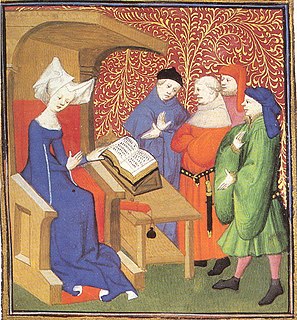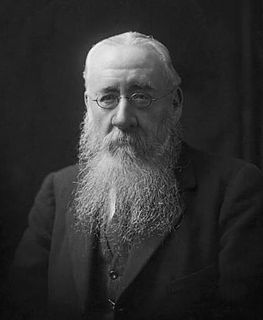A Quote by Niccolo Machiavelli
Men ought either to be well treated or crushed, because they can avenge themselves of lighter injuries, of more serious ones they cannot; therefore the injury that is to be done to a man ought to be of such a kind that one does not stand in fear of revenge.
Related Quotes
Living in the now is freedom from all problems connected with time. You ought to remember that sentence, you ought to memorize it, and ought to take it out, you ought to practice it, you ought to apply it. And most of all, you ought to rejoice in it because you have just heard how not to be wretched, miserable you any more but to be a brand new, and forever brand new man or woman.
Therefore the good man ought to be a lover of self, since he will then both benefit himself by acting nobly and aid his fellows; but the bad man ought not to be a lover of self, since he will follow his base passions, and so injure both himself and his neighbors. With the bad man therefore, what he does is not in accord with what he ought to do, but the good man does what he ought, since intelligence always chooses for itself that which is best, and the good man obeys his intelligence.
In Sufi terms the crushing of the ego is called Nafs Kushi. And how do we crush it? We crush it by sometimes taking ourselves to task. When the self says, 'O no, I must not be treated like this,' then we say, 'What does it matter?' When the self says, 'He ought to have done this, she ought to have said that,' we say, 'What does it matter, either this way or that way? Every person is what he is; you cannot change him, but you can change yourself.' That is the crushing. ... It is only in this way that we can crush our ego.
Women particularly should concern themselves with peace because men by nature are more foolhardy and headstrong, and their overwhelming desire to avenge themselves prevents them from foreseeing the resulting dangers and terrors of war. But woman by nature is more gentle and circumspect. Therefore, if she has sufficient will and wisdom she can provide the best possible means to pacify man.
All men, or most men, wish what is noble but choose what is profitable; and while it is noble to render a service not with an eye to receiving one in return, it is profitable to receive one. One ought therefore, if one can, to return the equivalent of services received, and to do so willingly; for one ought not to make a man one's friend if one is unwilling to return his favors.
The choice of euthanasia becomes more serious when it takes the form of a murder committed by others on a person who has in no way requested it and who has never consented to it. The height of arbitrariness and injustice is reached when certain people, such as physicians or legislators, arrogate to themselves the power to decide who ought to live and who ought to die.
As a philosopher, if I were speaking to a purely philosophic audience I should say that I ought to describe myself as an Agnostic, because I do not think that there is a conclusive argument by which one can prove that there is not a God. On the other hand, if I am to convey the right impression to the ordinary man in the street I think that I ought to say that I am an Atheist, because, when I say that I cannot prove that there is not a God, I ought to add equally that I cannot prove that there are not the Homeric gods.
































